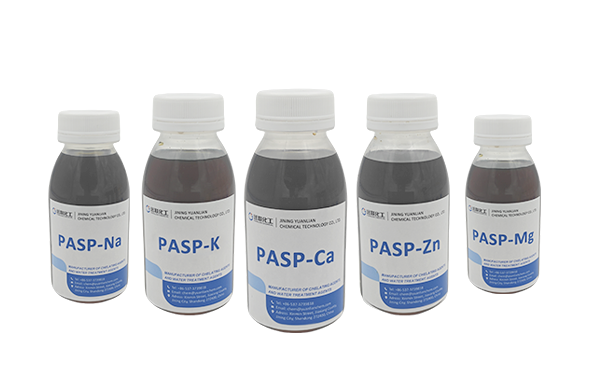
Phosphorus-Free Scale and Corrosion Inhibitors: A European Guide to Types, Applications, and Environmental Advantages
In an era of stringent environmental regulations like the EU's Water Framework Directive, phosphorus-free scale and corrosion inhibitors are no longer an alternative but the standard for sustainable industrial water treatment in Europe.
The shift towards a circular economy and the demand for REACH-compliant chemicals are driving European industry to adopt greener solutions. Traditional phosphonates, known for contributing to eutrophication in sensitive water bodies like the Rhine and Danube, are being phased out. Phosphorus-free inhibitors offer a future-proof solution, effectively protecting systems while minimising environmental impact and reducing the ecological footprint of industrial operations.
This guide provides a comprehensive overview of phosphorus-free inhibitor technologies, their applications, and how to select the right product for European operational and regulatory needs.
01 Market Context and the Drive Towards Phosphorus-Free Solutions in Europe
The evolution of water treatment chemicals in Europe has been significantly influenced by environmental legislation. The EU Water Framework Directive aims to achieve good qualitative and quantitative status of all water bodies, directly impacting discharge permits. This, coupled with corporate sustainability goals, has accelerated the adoption of phosphorus-free formulations.
Leading European chemical companies have been at the forefront of developing advanced polymers and biodegradable formulations. These next-generation products are designed for high cycles of concentration, compatibility with stringent discharge limits, and effectiveness in complex industrial applications, from German automotive plants to Scandinavian pulp and paper mills.
02 Three Core Types of Phosphorus-Free Inhibitors
1. Polymer-Based Inhibitors
This category represents the mainstream technology, with Polyepoxysuccinic acid (PESA) and Polyaspartic acid (PASP) being prominent examples.
-
Key Characteristics: Not only are they effective, but they also offer ultimate biodegradability, making them particularly suitable for environmentally sensitive areas. They work through threshold inhibition and dispersion, preventing scales like calcium carbonate and calcium sulphate from depositing.
-
European Advantage: Their high calcium tolerance makes them ideal for the hard water prevalent in many parts of the UK, France, and Spain.
2. Natural Organic Polymer Derivatives
These products, such as modified lignosulphonates or tannin-based inhibitors, are derived from renewable resources.
-
Key Characteristics: They are often "P- and N-free" (Phosphorus and Nitrogen-free), offering an excellent environmental profile. They provide good corrosion inhibition, especially for carbon steel.
-
European Advantage: Their natural origin aligns perfectly with the bio-economy strategy promoted by the European Union, appealing to companies seeking the greenest possible profile.
3. Composite Formulation Inhibitors
These are multi-component blends designed for synergistic performance. A typical European formulation might combine a polymer like PESA with a zinc-free corrosion inhibitor such as sodium molybdate.
-
Key Characteristics: They provide all-in-one functionality—scale inhibition, corrosion control, and dispersion of suspended solids. They can be tailored to specific water chemistries and system metallurgy (carbon steel, copper, stainless steel).
-
European Advantage: Offers a comprehensive solution for complex multi-site operations, ensuring performance while simplifying chemical inventory and ensuring compliance across different EU member states.

03 Application Scenarios and a Selection Guide for European Industry
Primary Sectors of Application:
-
Power Generation: Combined cycle gas turbines and biomass power plants across Europe.
-
Chemical & Pharmaceutical: BASF in Germany, Solvay in Belgium, and other chemical clusters requiring strict compliance.
-
Manufacturing & HVAC: Automotive manufacturing facilities and large commercial HVAC systems in major cities.
How to Select the Right Inhibitor:
Selecting the appropriate inhibitor requires a structured approach:
-
Water Quality Analysis: This is the most critical step. Analyse the hardness, alkalinity, chloride, and silica levels of your make-up water and at the intended cycles of concentration. Water in the Mediterranean region differs significantly from that in Scandinavia.
-
Environmental Compliance Requirements: Determine if your facility is located in a Nutrient Sensitive Area (NSA) or has specific discharge consents. This may mandate the use of readily biodegradable inhibitors like PESA or PASP.
-
System Parameters: Consider the materials of construction, operating temperatures, pH, and design concentration factor.
-
Technical and Economic Assessment: While single polymers may be simpler, composite inhibitors might offer lower total cost of ownership due to higher efficiency. Partner with a water treatment specialist for a tailored pilot test to validate performance under your specific conditions.
04 Practical Guidance for Use
Dosage and Feeding:
Typical treatment levels range from 5 to 40 mg/L. The product should be fed continuously via a metering pump into the suction side of the system's recirculation pump. The exact dosage must be determined by water quality and system conditions.
Safety and Handling:
Phosphorus-free inhibitors are generally safer than their acidic or heavy-metal-containing predecessors. However, always refer to the Safety Data Sheet (SDS) provided by the supplier. Use appropriate personal protective equipment (PPE) such as safety glasses and gloves during handling.
Conclusion
The transition to phosphorus-free scale and corrosion inhibitors is a clear and necessary trend aligned with Europe's Green Deal ambitions. These advanced chemistries provide effective protection for industrial assets while safeguarding the quality of Europe's water resources for future generations.
Yuanlian Chemical specializes in the production of polyaspartic acid (PASP),tetrasodium iminodisuccinate(IDS), GLDA, MGDA etc. with stable quality and excellent quantity!





Contact us